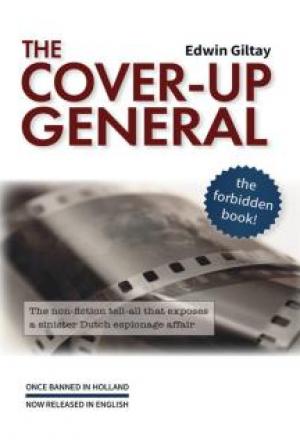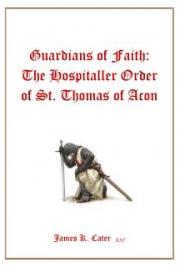CHAP. C.
THE FRENCH OFFER BATTLE TO THE DUKE OF BURGUNDY AND HIS ARMY, WHICH THE DUKE, BY ADVICE OF HIS COUNCIL, REFUSES.
THE duke of Burgundy received the news of this unfortunate defeat at Peronne on the very day when it happened. He was greatly affected by it, more especially for the loss of James de Helly and Anthony de Vienne, and instantly called together the captains then with him, namely, sir John de Luxembourg, the vidame of Amiens, the lord d'Antoing, the lord de Saveuses, and others of his household, with whom he determined to fix his quarters at Lihons in Santerre,—and he marched thither that day.
On the morrow, he advanced to Roye in the Vermandois, where he remained eight days waiting for the earl of Stafford, the earl of Arundel and other Englishmen to whom he had sent orders to join him.
During this time, many of the captains of king Charles collected a body of about sixteen hundred combatants; and under the command of the marshal de Bousac, the count de Vendôme, sir James de Chabannes, William de Flavy, Poton de Saintrailles, the lord de Longueval, sir Regnault de Fontaines, sir Louis de Vaucourt, Alain Guyon, Boussart Blanchefort, marched in good array near to Mondidier, and thence went to quarter themselves at two villages two leagues distant from Roye.
Very early on the ensuing day, they held a council, and unanimously determined to offer combat to the duke of Burgundy and his army, if he would meet them in the open country; and that their intentions might be publicly known, they sent a herald to the duke with their challenge.
The duke, on receiving it, agreed to meet them in battle. The matter, however, was delayed by his council, who remonstrated with him on the impropriety of risking his person and honour against such people, as they had not with them any prince of equal rank with himself for him to contend with. They also stated, that he was weak in numbers, and that his troops were dispirited from the defeat they had lately suffered, and the loss of James de Helly, as well as by their retreat from before Compiègne.
The duke, much grieved that he could not follow his own inclinations, assented to the advice of his council. They sent, therefore, an answer to the French, that if they would wait until the morrow, they should be unmolested in their quarters; that even provision should be sent them, and that then sir John de Luxembourg would engage them in battle, for which he was willing to give sufficient securities.
The French, on receiving this answer, said, they would not consent to it; but that if the duke of Burgundy was willing to advance into the plain, they were ready to combat him. While these messages were passing, the duke drew his men up in battle-array without the town of Roye: the French were also in order of battle, fronting him; but it was difficult to pass from one army to the other, by reason of the deep marshes that were between them. Some skirmishing, nevertheless, took place until night-fall, which forced the French to retire toward Compiègne, very indignant at the duke's conduct, and making great mockeries of him and his men, saying they were afraid to fight them.
Thus the two armies separated, and the duke re-entered the town of Roye,—when shortly after arrived the earl of Stafford, with about six hundred combatants. The duke now left Roye, and went to quarter himself at Leigny-les-Chastiniers, where was a small castle, in which was the abbot de St Pharon de Meaux, brother to the lord de Gamaches, with about forty of the French.
The duke summoned them to surrender, which they refused,—and he instantly made an attack which gained him the lower court. Finding they could not hold out longer, they submitted themselves to the duke, who gave them up to sir John de Luxembourg, for him to do his will with them, and the castle was burnt and razed.
The inhabitants of Noyon sent to request of the duke, that he would deliver them from the garrison of the castle of Irle; but as it was now winter, and the duke had not those with him whom he looked for, he returned to Montdidier, wherein he placed a garrison, and thence by Corbie to Arras, and to Flanders. The earl of Stafford marched his Englishmen back to Normandy.
In this year, the town of Coulomiers en Brie, was taken by scalado, at day-break, by part of king Henry's garrison from Meaux. The governor of Coulomiers for king Charles was Denis de Chally, who, hearing the disturbance, escaped with many others over the walls, abandoning their effects. The town was full of all sorts of wealth, for it had not been taken during the whole of the war by either party: it was now completely pillaged, and the inhabitants who had remained were heavily ransomed.
In this year, Pierre de Luxembourg count de Conversan and Brayne, and successor to the inheritances of the count de St Pol, made some agreement with his two brothers, namely, Louis bishop of Therouenne and sir John de Luxembourg respecting this succession. In consequence of which the bishop was to have the castle of Hucties, in the Boulonois, and the castlewick of Tingry with its dependancies: sir John de Luxembourg was to have for himself and his heirs the county of Ligny in Barrois, the lands in Cambresis, formerly belonging to Waleran count de St Pol, namely, Bohain, Serin, Helincourt, Marcoin Cautaig and other great lordships. From this time, sir John de Luxembourg bore the titles of count de Ligny Lord de Beaurevoir and de Bohain.
The whole of the remaining estates and lordships were enjoyed by sir Pierre de Luxembourg, who, henceforward, took the titles of Count de St Pol, de Conversan, de Brayne, and lord of Enghien.
On the 30th day of September, in this year, the duchess of Burgundy was brought to bed, in the town of Brussels, of a son, who was christened Anthony; which event, caused the greatest rejoicings in that town and country. At this time, the count de Nuche, nephew to the emperor of Germany, was in Brussels, where he kept a noble estate; and he and some of his attendants, when they went abroad wore green chaplets on their heads to signify that they were bachelors, although the weather was very severe.
The count de Nuchy stood godfather for the new born son of the duke of Burgundy, who was christened by the bishop of Cambray. The godmothers were the duchess of Cleves and the countess of Namur. There were three hundred torches, as well from the palace of the duke as from those of the town.
The child died in the following year; and when news of it was carried to the duke, he was much vexed, and said, 'I wish to God I had died when so young, for I should then have been much happier.'
In this same year, sir Anthony de Bethune lord of Maruel was captured in his castle of Auchel, together with about thirty fighting men. It had been besieged by the count de Vendôme, Toumelaire provost of Laon, whom I have before noticed, with great numbers of the commonalty. Sir Anthony, seeing that resistance would be vain, agreed to surrender the place, on condition that he and his men might march away in safety.
Notwithstanding this engagement, when he was about to depart, he was seized and put to death by these common people, together with a gentleman called Franquet de Beguynes. The count de Vendôme was much grieved at the event, but he could not prevent it.
The castle was burnt and razed, to the great indignation of sir John de Luxembourg, when he heard what had passed because sir Anthony was cousin-german to the lady Jane de Bethune, his wife, daughter to the viscount de Meaux; and he conceived a great hatred against those of Laon for so doing.
END OF VOL. VI.
FOOTNOTES:
[1] To clear up, if possible, these misnomers, I consulted my friend, Dr Robert Anderson, at Edinburgh. 'He thinks, that Stephen and John de Farimeres may perhaps mean Ferrier, or Ferrieres, which are scottish names. It may be Farmer, or Farnihurst, or Fernihurst, the ancient title of the family of Lothian. Stephen, however, is a Christian name of but rare occurrence.
The nephew of the earl of Buchan is doubtful. Robert Stewart was active in raising the levies, but whether he attended his uncle to France, and was killed at Crevant, is uncertain.
[2] Sir Thomas Secron is probably sir Thomas Swinton, who is mentioned by our historians among the gentlemen of reputation and honour who fell at this battle. This is almost certain.
[3] Sir William Hambon is evidently sir William Hamilton. Hume mentions him among those who were left on the field of battle.
[4] John Pillot does not apply to any Scottish name, except perhaps Pollock, which seems probable. Of the bastard of the king, I find no name.'
[5] Oldeberth,—probably Oldenbourg.
[6] La Garide. Q. if not meant for Gertruydenberg?
[7] Branvers. Q. Brouvershaven?
[8] Zeneuberche. Q. Nieuverkerk?
[9] Citolye. Q. Chiti.
[10] Leneure. The annotations at the beginning of the volume, french edition, suppose it to be Geneppe or Gueneppe, a summer residence of the dukes of Brabant, whither Louis XI. when dauphin, fled to, and resided at during his stay in Brabant.
[11] Mont de Hellem must be Tombelaine (probably a corruption of Tombe d' Heléne), a small rock near to Mont St Michel.
[12] Hermontfort. Q. if not Herenthuls?
[13] Tintenarch,—probably Tinteniac, a village near St Malo.
[14] Cambray. Q. Coimbra.
[15] Albastre. Q.
[16] Sir Thomas Gargrave.
[17] Au hennin. This was the name given by the preacher to those ridiculous colossal head dresses worn by the ladies in the 15th century. For further particulars, see the French Encyclopedie, vol. viii.
[18] Bouvines,—in the county of Namur, situated on the Meuse.
[19] Q. If not sir John Fastolfe.







